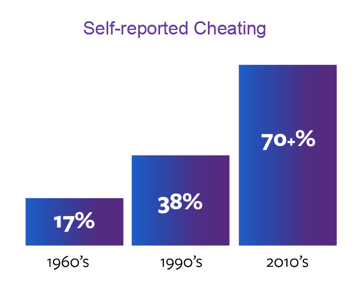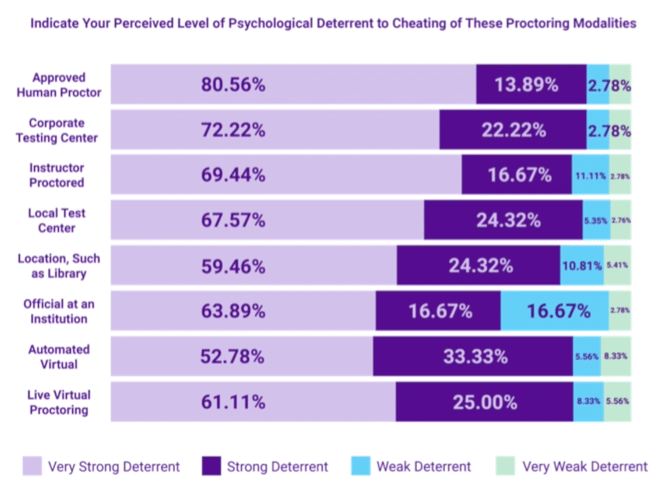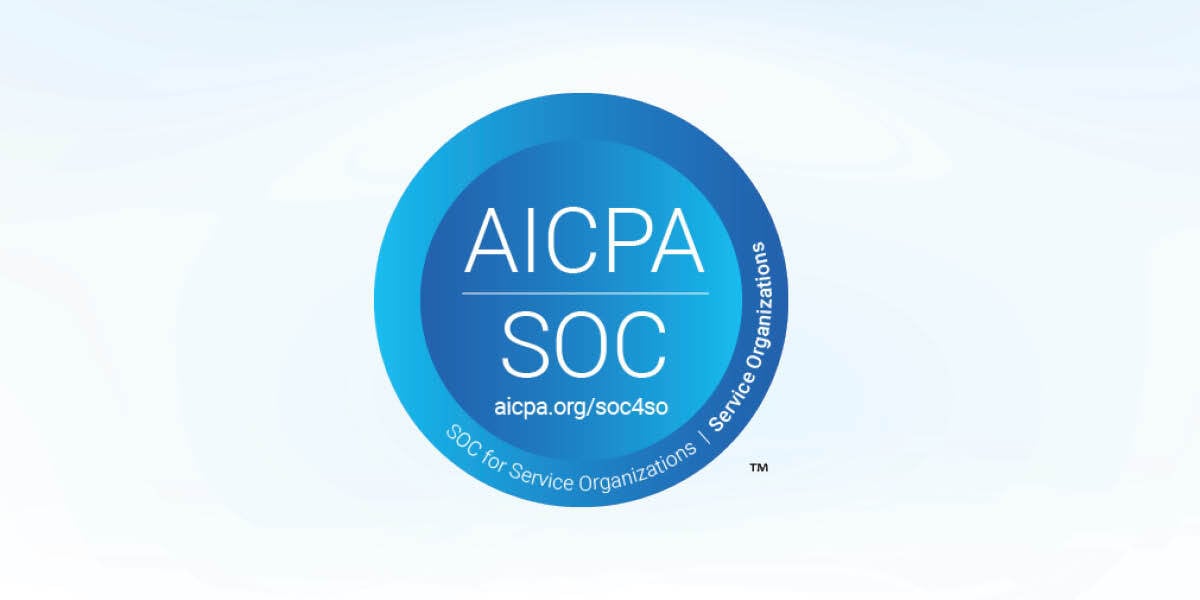
There are a few questions that I have been thinking about lately. Does Proctoring Matter? Does it make a difference when we monitor students who are taking exams? Is it a sufficient deterrent to lower the level of cheating?
Watch this 6-minute SmarterReflections video where I'll tackle the answer to these questions, review the data behind this subject, and provide more insight on academic integrity.
Don't want to watch the video? No problem! Take a look at the video summary below.
Video Summary:
As educators, we concur that integrity is important. Academic integrity is a core tenet of the fabric of higher education. When we hand a graduate that diploma we are saying to the world that this person possesses the knowledge, competencies, attributes, and dispositions expected for them to function as a professional. Would you want to use an accountant who cheated? Or undergo surgery by a physician who cheated?
Students who cheat rather than learn to pass courses are less prepared for the workforce and may be more likely to engage in unethical behavior as a professional (Smyth et al., 2009; Teixeira & Rocha, 2010). So, it is imperative that learners demonstrate mastery in a controlled environment that validates their competency.
 In the past 30 years, the number of students that self-reported consistent or frequent cheating increased rather sharply, especially in regard to cheating on tests. In the early 1960s, 17% of students surveyed stated that they had cheated at least 3 times, while in the 1990s that number had increased to 38% (McCabe et al., 2001). The most recent number is shockingly at 70% plus.
In the past 30 years, the number of students that self-reported consistent or frequent cheating increased rather sharply, especially in regard to cheating on tests. In the early 1960s, 17% of students surveyed stated that they had cheated at least 3 times, while in the 1990s that number had increased to 38% (McCabe et al., 2001). The most recent number is shockingly at 70% plus.
With the advent of online learning, that ability for students to engage unseen with faculty has grown, as has the ability for students to cheat and rarely get caught. The opportunity for cheating on tests increases, especially when exams are delivered in un-proctored environments.
The research:
SmarterServices administers the Proctoring Practices Survey in which we measure perceptions regarding several aspects of proctoring. On one of the questions, we ask students to rank their level of perceived psychological deterrent to cheating across several modalities. The modalities that were the highest deterrent were face-to-face modalities such as an approved human proctor, testing center, or instructor as proctor. Automated virtual proctoring was perceived as the weakest deterrent to cheating. Check out the data below.
 I recommend taking a look at an article that was published in the Journal of the National College Testing Association titled “Academic Dishonesty and Testing: How Student Beliefs and Test Settings Impact Decisions to Cheat.” In this study, 734 students were surveyed from four different institutions of higher education.
I recommend taking a look at an article that was published in the Journal of the National College Testing Association titled “Academic Dishonesty and Testing: How Student Beliefs and Test Settings Impact Decisions to Cheat.” In this study, 734 students were surveyed from four different institutions of higher education.
The researchers were interested in how student attitudes towards specific environments for testing might contribute to the prevalence or likelihood of cheating on tests and exams. Results indicated that both students’ attitudes and behaviors vary as a result of tests being delivered in a proctored versus un-proctored environment. Here are the findings, recommendations, and conclusions from this study.
The Findings:
The three major findings were that
- Students are more likely to cheat when exams are not proctored.
- Students feel that it is the school’s responsibility to provide a testing environment that discourages cheating.
- Students feel that when a test is not proctored, that it is more OK to cheat.
The Recommendation:
The researcher’s recommendation was that proctoring exams was imperative and that just having students agree to an honor code was not enough of a deterrent against academic dishonesty.
The Conclusion:
The conclusion of the research was that students are more likely to cheat on exams when they are not being monitored and that the converse of this is true that when exams are proctored that it produces attitudinal and behavioral changes among students.
Overall:
So, proctoring does matter. But as educators, we need to recognize that even our best proctoring efforts are just a deterrent to keep honest students honest. Persons who willfully intend to cheat likely will do so. Proctoring may be similar to an empty police car on the highway. When you see it your behavior changes – you pump the brakes. But if you see the same police car every day and it is always empty, then you would most likely not slow down. This is why it is a good practice to allow faculty to utilize multiple proctoring modalities.
SmarterProctoring allows schools to offer and manage the full spectrum of proctoring modalities including face-to-face options such as instructor as a proctor, testing centers, and proctoring professionals as well as virtual options such as automated, record and review, and live virtual proctoring. Click here to get started or to learn more about how SmarterProctoring can help your institution.
McCabe, D. L., Trevino, L. K., & Butterfield, K. D. (2001). Cheating in academic institutions: A decade of research. Ethics and Behavior, 11(3), 223.
Smyth, L., Davis, J., & Kroncke, C. (2009). Student’s perceptions of business ethics: Using cheating as a surrogate for business situations. Journal of Education for Business, 84(4), 229-239
Teixeira, A., & Rocha, M. (2010). Cheating by economics and business undergraduate students: An exploratory international assessment. Higher Education, 59(6), 663-701. https://doi.org/10.1007/s10734-009-9274-1






